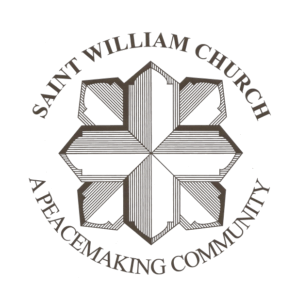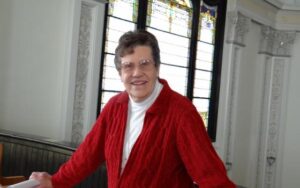Los norteamericanos siguen el camino sinodal

Foto de Luke Porter en Unsplash
El miércoles pasado, los equipos sinodales de las Conferencias Episcopales de EE.UU. y Canadá publicaron su Documento Final Norteamericano para la Etapa Continental. El documento de 22 páginas (excluyendo los Apéndices) recoge el proceso y los frutos de un discernimiento comunitario sin precedentes históricos de 931 delegados de nuestros dos países en 12 asambleas sinodales virtuales convocadas en tres idiomas entre diciembre y enero. Aunque la nuestra fue la única de las siete asambleas continentales que se reunió virtualmente, los delegados norteamericanos abordaron "Ensancha el espacio en tu tienda", la síntesis global de la primera fase del sínodo, con las mismas preguntas que los delegados de todo el mundo: ¿qué resuena, qué preguntas surgen, cuáles deberían ser nuestras prioridades?
El equipo sinodal norteamericano, compuesto por 18 personas, entre obispos, sacerdotes y laicos de ambas Conferencias, identificó tres temas que surgieron en las conversaciones sinodales: Dotados y Llamados mediante el Bautismo; Comunión con Cristo y entre nosotros; y Enviados en Misión. Estos temas sirven de base para cinco recomendaciones concretas, que servirán de base para la elaboración del documento de trabajo del Vaticano, Laboris Instrumentum, para la primera de las dos reuniones mundiales de obispos que se celebrarán en Roma el próximo mes de octubre:
- Integración de la consulta sinodal en las Iglesias locales a través de la formación en la sinodalidad y la espiritualidad del discernimiento;
- Dar la bienvenida a quienes se sienten excluidos de la participación en la vida de la Iglesia de manera auténtica y fiel al Evangelio y a la fe católica;
- Corresponsabilidad en la misión;
- Abordar la unidad y la comunión de la Iglesia en medio de diversos tipos de polarización y división; y
- Una Iglesia que sale a las periferias.
Tal como sucedió con los documentos oficiales anteriores relacionados con el sínodo -el Informe Nacional de los Obispos de EE.UU. y "Ensancha el espacio de tu tienda" del Vaticano- ¡aquí hay buenas nuevas! Varios delegados a las Asambleas Continentales de América del Norte, así como un participante en la sesión de discernimiento de la Región XVI organizada por el Equipo del Sínodo de la USCCB, que son activos con Discerning Deacons, nos ayudan a reconocer esa buena nueva.
En primer lugar, a pesar de las limitaciones de un proceso virtual, el Equipo del Sínodo de América del Norte se comprometió con un proceso sinodal que privilegiaba la escucha y el discernimiento comunitario. En otras palabras, si el sínodo es algo que se aprende haciendo, entonces las Conferencias Episcopales de EE.UU. y Canadá están realmente aprendiendo. Por ejemplo, se hicieron esfuerzos para crear relaciones sinodales entre los grupos de discernimiento más pequeños de cada una de las asambleas virtuales. El equipo de redacción también solicitó comentarios a medida que escribía, lo que constituye un importante compromiso sinodal de responsabilidad y confianza.
Perhaps most importantly, the bishops themselves embraced a vulnerable posture in their public reflection of their experiences of synodality, whether as leaders of initiatives in their respective conferences or as participants in the process at diocesan and continental levels. In their introductory letter, as well as a 16-paragraph section of personal reflections, they acknowledged that they “can and must do better in consulting those who are poor, migrant communities, Indigenous peoples, and racial minorities in our communities, and the many others who are wounded in the Church and in society” (#50). They admitted to being as uncertain as many lay people about where this synodal process may be taking us, needing as much formation as any other Catholics in the spirituality and skills of synodality, and resolving to trust in the Holy Spirit. “Synodality is an adventure and we aren’t very familiar with it,” they said, acknowledging that synodality is something “bigger” than the “parish pastoral councils, presbyteral councils, and diocesan pastoral councils” with which they are more familiar. “We need to do more with our people – listen to them more to aid our discernment; sit down with them and discuss the religious life in the diocese. We cannot just sit in the office and make important decisions by ourselves” (#48).
Bernadette Rudolf, Program Director at Centro Espiritual Cranaleith (inglés) y delegada de la Asociación Nacional para el Ministerio Laico (inglés) en la sesión de discernimiento de los obispos estadounidenses con los delegados de la Región XVI, quedó impresionada por la postura humilde de los obispos. "Me conmueve el modo en que la sinodalidad libera a la gente para hablar con honestidad: sobre sus esperanzas, sobre las cuestiones difíciles que deben abordarse y sobre lo que les resulta difícil en el proceso. Las ‘Reflexiones de los obispos sobre la experiencia de la sinodalidad en América del Norte’ tuvo un tono especialmente humilde. Los obispos reconocieron lo mucho que tienen que aprender y cambiar. Pidieron que el pueblo no les pierda la fe. ¡Wow! Eso es significativo".
Second, this official synod document largely affirms what we heard from brothers and sisters around the world back in the fall with the release of the global synthesis report. The People of God desire more synod and need more opportunities to become synodal by engaging each other synodally. The wounds of violated trust and exclusion at the hands of the Church itself are deep and can be healed through intentional encounters of loving affirmation and inclusion in the tent of God’s holy people. Our baptism gives us equal stake in the responsibility for the Church’s mission in a world that needs it more than ever. Our young people are “the now” of the Church and want to be in the mix, including at global gatherings of bishops in Rome (#20). And while it is women who keep the church “alive and healthy,” we remain a marginalized group within it, a reality that can be remedied by acknowledging the “baptismal dignity” of women and continuing “the examination of a variety of aspects of Church life, including decision making roles, leadership, and ordination” (#19).
"The document echoes what I heard in the session for Region XVI,” said Rudolf, “as well as what I heard at various sessions responding to the DCS. Despite the narrowness of participation in this part of the synodal journey, people of good will have named some key issues for the North American Church. The document seems accurate. This process of synodality has begun and the cat is out of the bag. As one participant is quoted as saying, ‘There is no going back’ (#57). It is essential to the future of the Church that this conversion continue with the same honesty and humility."
La última buena noticia es el hecho de que las cinco prioridades para la Iglesia estadounidense y canadiense son los permisos que necesitamos para seguir recorriendo el camino sinodal con confianza y valentía. ¿Quién mejor para asociarse con nuestros obispos en la consecución de su prioridad de formación para la sinodalidad y el discernimiento arriba y abajo de la Iglesia que aquellos que lo han estado haciendo fielmente desde que el Papa Francisco nos invitó al sínodo en octubre de 2021? ¿Quién mejor para ayudar a modelar la acogida de los que están en las periferias de forma coherente con el mensaje evangélico y la enseñanza de la Iglesia que muchos de nosotros que ya intentamos hacerlo precisamente en y a través de aspectos de nuestras identidades que nos relegan a un segundo plano en nuestra Iglesia? ¿Quién mejor para comprender la corresponsabilidad que las mujeres y los jóvenes están dispuestos a asumir que las mujeres y los jóvenes, especialmente las jóvenes, que están en el centro de los esfuerzos sinodales hasta la fecha? ¿Quién mejor para fomentar la unidad y la comunión en medio de las fuerzas polarizantes y politizadas de nuestra sociedad e Iglesia que quienes ya conocen el poder de los encuentros sinodales para sustituir el miedo por la curiosidad y el juicio por la afirmación de la dignidad compartida? ¿Quién mejor para catalizar una Iglesia que sale a las periferias que aquellos que llevan haciéndolo desde antes de octubre de 2021 para que también ellos sean incluidos en este camino sinodal?
“Let’s enrich the life of the Church by taking seriously the baptismal call of women from the moment the living waters flow over them,” , dijo Bridget Deegan Krause MDiv, an NACC board certified chaplain and delegate from the Archdiocese of Detroit. “Every child, including girls, should grow up hearing and see themselves in the Church’s discernment of full gifts for all levels of ministry, including ordered ministry and governance.”
Con ese fin, Deegan Krause apreció el reconocimiento del Equipo del Sínodo de Norteamérica de que “discernir una forma práctica de avanzar" en cuestiones relacionadas con la corresponsabilidad en la Iglesia requerirá “una consideración de las normas canónicas y
Michelle Catania, a delegate from the Archdiocese of Cincinnati, echoed Deegan Krause’s appreciation. "There seemed to be a recognized disconnect between the ‘smaller’ Church efforts in our Catholic communities (and ourselves) and the ‘bigger’ institution,” she said. ”There were no answers about how to combine this divergence, but there sí se hizo hincapié en que 'nombrarla' continuamente es también un paso vital en nuestro camino sinodal".
“The need for formation is stated over and over again in the document,” commented Rudolf. “The fulfillment of this need is crucial. We have entered a strange new world and everyone needs to learn the lay of the land.”
“The document lands in a lovely place,” concluded Deegan Krause, who acknowledged again that the bishops’ own reflections convey a pastoral tone and recognition of the fact trust has been broken and bridges need to be built. “Always we need to account for the clericalism, elitism, sexism, racism and ableism that poison our ability to be peers with one another, laity and clergy. Structured conversations with rules and expectations, governed by the Spirit through prayer is where this happens.”
No temas, Iglesia global. Los norteamericanos están en el camino sinodal.


